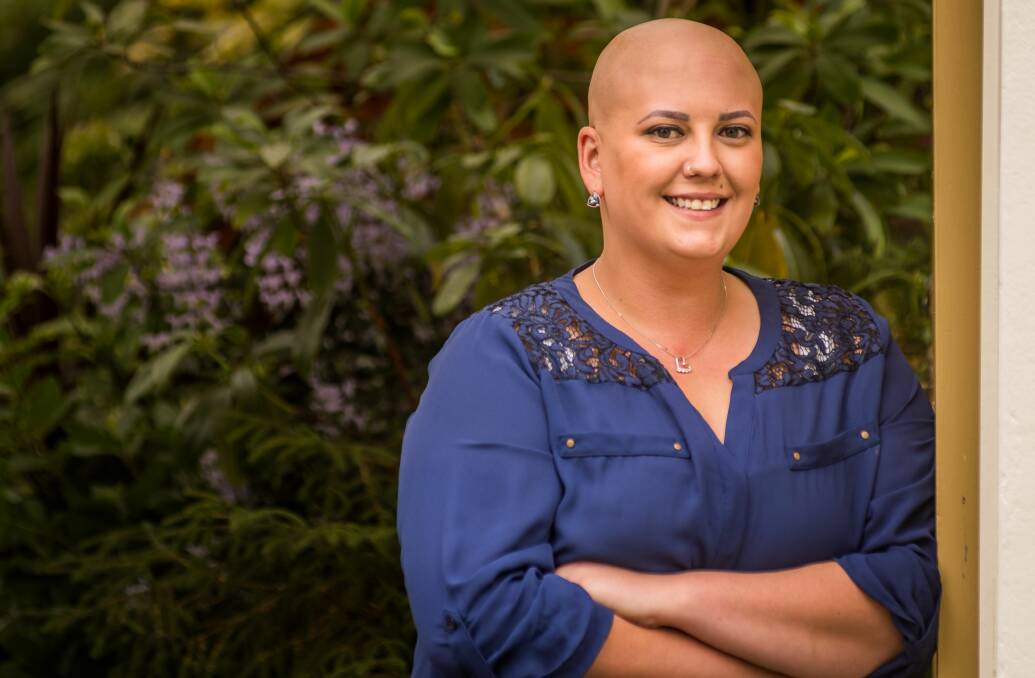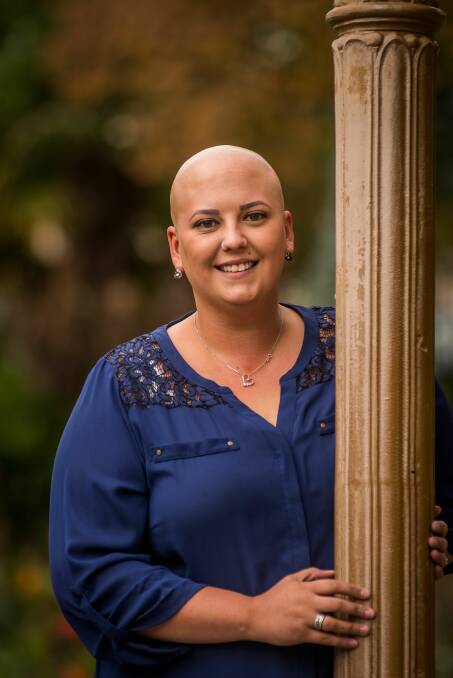
Jessica Moss-Farley has lost all of her hair, but she doesn’t want people to feel sorry for her.
Subscribe now for unlimited access.
$0/
(min cost $0)
or signup to continue reading
The 26-year-old has been “rocking” her new look since late last year when she was diagnosed with Alopecia Areata.
The disease causes the body’s immune system to attack hair follicles, resulting in hair loss, and currently affects more than 500,000 Australians.
For Miss Moss-Farley, her diagnosis came out of nowhere.
“I remember it so clearly,” she said.
“It was November 28 and I was lying in bed and was on Snapchat when I noticed a small white area on my hair that looked like fluff on the image of myself on the phone.
“I jumped out of bed and stood in front of the mirror. To my horror, it wasn’t fluff, but a bald patch the size of a 20 cent piece.”

The next day, Miss Moss-Farley went to her GP who diagnosed her with Alopecia Areata. Since then, she has lost nearly every hair from her body including her eyebrows and eyelashes.
She said the diagnosis quickly took over her life.
“I felt defeated, depressed and anxious,” she said.
“Anxious about leaving the house, anxious about having visitors, anxious about having to be in contact with anyone in any shape or form.
“I became obsessed taking photos of my patches to record and monitor my hair loss. This process started to control my life. I was in a horrible, dark and dreadful place.”
Miss Moss-Farley said her “saving grace” was the comfort she found in Alopecia Areata support groups.
Connecting with people online, she found a new sense of confidence in dealing with her diagnosis.
“I suddenly felt empowered, knowing that I wasn’t the only one going through this,” she said.
“When I shared my story online, everyone kept telling me that it’s just hair. But this is about so much more than just hair.
“I felt like I had lost control of my body. People only see the exterior affects of this disease, but not the interior.”
On April 29, the Australia Alopecia Areata Foundation will hold its first Tasmanian support group open day at Battery Point.
Here, Miss Moss-Farley will share her story as a guest speaker – something she hopes will inspire confidence in others living with the disease.
“I don’t want this to be a pity party – I am still the same old Jess,” she said.
“At first, I never left the house without my wig. Slowly I started to go out without it and now I hardly wear it.
“Being a rare disease, Alopecia can be very isolating.
“It is important to meet and connect with others going through something similar.”


